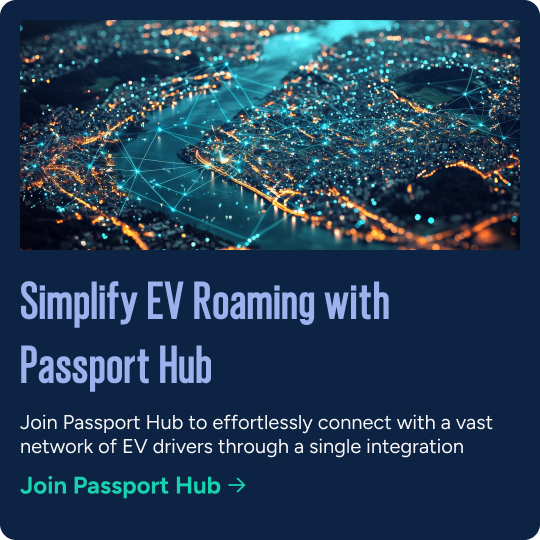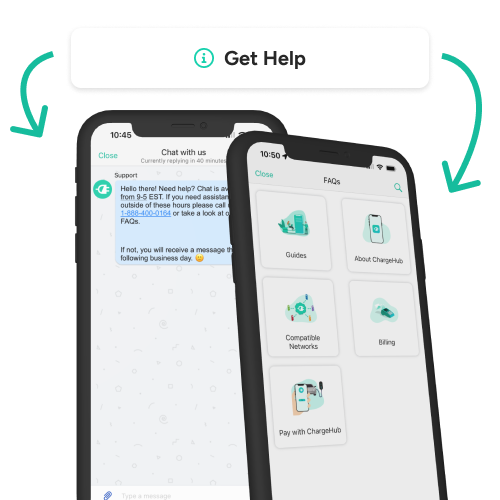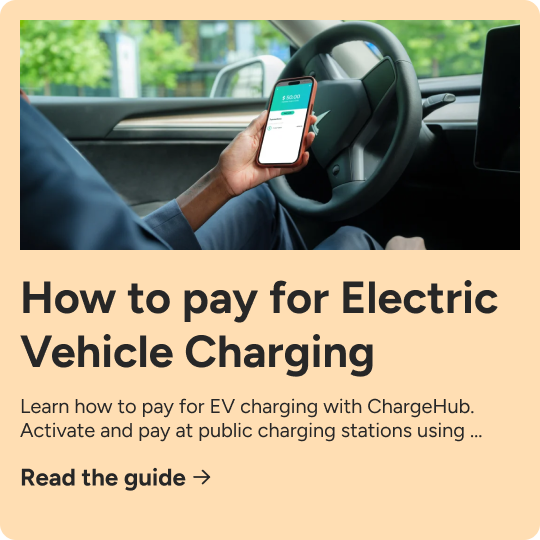-
EV Business Solutions
-
EV Drivers
-
Our Company
-
Resources
End-to-end Testing and Validation
The ChargeHub Lab: Testing Without Limits
A seamless, secure and reliable EV charging experience starts with robust testing across the ecosystem. Few industry players can offer a single, end-to-end testing environment for any activation methods (including remote start, RFID and Plug & Charge), but we do!

Inside the ChargeHub Lab
Designed for eMobility Service Providers (eMSPs), Original Equipment Manufacturer (OEMs), and Charging Point Operators (CPOs), our testing environment supports every step of EV charging.
From activation to reconciliation, we ensure every part of the public charging experience is working as smoothly as possible.
Explore how our lab supports every key player in the EV charging ecosystem
For CPOs:
Validate and streamline your backend integration
- Test AC & DC EVSEs from multiple manufacturers in one place
- Connect OCPP-compatible stations to your back office for staging
- Bring your own test station for custom scenarios
- Simulate roaming tests end-to-end (start, session, billing)
- Test P&C authentication with V2G roots, certificates, and simulators

For OEMs:
Ensure reliable EV roaming
- Test Plug and Charge authentication across many EVSEs
- Validate end-to-end charging sessions connected to real CPOs
- Confirm interoperability with stations in our EV roaming hub

For eMSPs:
Optimize your app and EV driver experience
- Run full end-to-end tests with multiple EVSEs and CPOs
- Use staging to detect and fix bugs before production
- Save time: run multiple tests in minute instead of hours

Our controlled lab environment helps partners test earlier, more thoroughly, and with greater confidence. The result: faster delivery of robust, seamless charging experiences.
Olivier Proulx, CTO of ChargeHub
Beyond the ChargeHub Lab
Our tests don’t end in our staging environment. Our team actively tests stations on the road, ensuring a consistent and reliable EV charging experience while our dedicated in-house data analyst team closely monitors all the collected data from multiple sources.
Learn more about some of our most recent initiatives:
FAQ - Business Solutions
What types of charging stations support Plug&Charge technology?
Plug&Charge technology is compatible with a wide range of charging stations that adhere to the ISO 15118 standard. This standard ensures that vehicles and charging infrastructure can communicate effectively, enabling a secure and efficient charging experience.
How does Plug&Charge technology differ from Autocharge?
While both solutions aim to simplify the EV charging process, Plug&Charge technology (based on the ISO 15118 standard) incorporates a much more secure and robust communication process. ISO 15118 uses digital certificates to authenticate the vehicle, allowing encrypted communication between the vehicle and the charging station. This standard also uses a digital certificate to represent the EV driver for authorization, ensuring secure, automatic transactions without requiring user input. In contrast, Autocharge does not authenticate or encrypt communication; it only uses the vehicle’s MAC address to identify and authorize the user, which provides a more basic level of access control.
How does security is enabled with the Plug&Charge technology?
The ISO 15118 standard that governs Plug&Charge is built on the highest security requirements. It relies on digital certificates which are responsible for the identification of ecosystem participants and the encrypted communication between them. For example, each charge point and charging contract are represented by a unique certificate. For the system to work, certificates need to be present in vehicles, charge points and backend systems. A trusted third party entity (Certificate Authority) must be part of the whole chain for enabling the seamless and secure operation of Plug & Charge, providing trust between the vehicle, the charging station, and the backend systems.
What is Public Key Infrastructure (PKI) in Plug & Charge?
Public Key Infrastructure (PKI) is a crucial element of Plug&Charge technology. It provides the framework for secure communication between electric vehicles and charging stations. PKI uses digital certificates to authenticate and authorize users, ensuring that each transaction is safe from cyber threats. This infrastructure underpins the security and reliability of the Plug&Charge experience.
How can I implement Plug&Charge technology in my business?
To explore the integration of Plug&Charge technology into your operations, contact us for a personalized consultation. Our team will guide you through the process, ensuring a smooth implementation tailored to your specific needs.
Empower Your EV Strategy with ChargeHub
At ChargeHub, we understand that each organization has unique needs in the evolving electric vehicle landscape. Our team is dedicated to providing flexible, scalable solutions tailored to your specific requirements. Connect with us today to discover how we can support your success in the EV industry.












